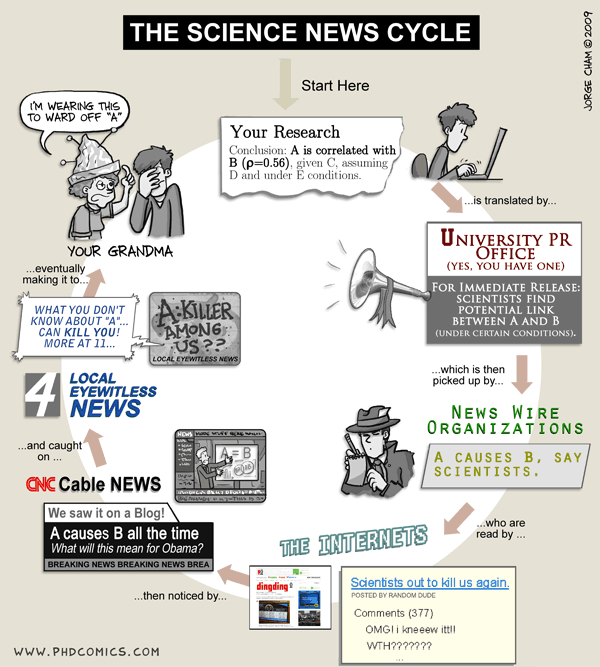Marriage and Happiness
 NYT columnist David Brooks points to the case of Sandra Bullock, who found out that her husband was having a sleazy affair shortly after she won an Oscar to illustrate his contention that, “If you have a successful marriage, it doesn’t matter how many professional setbacks you endure, you will be reasonably happy. If you have an unsuccessful marriage, it doesn’t matter how many career triumphs you record, you will remain significantly unfulfilled.”
NYT columnist David Brooks points to the case of Sandra Bullock, who found out that her husband was having a sleazy affair shortly after she won an Oscar to illustrate his contention that, “If you have a successful marriage, it doesn’t matter how many professional setbacks you endure, you will be reasonably happy. If you have an unsuccessful marriage, it doesn’t matter how many career triumphs you record, you will remain significantly unfulfilled.”
He points to a whole series of studies showing that, once basic subsistence is met, money buys no increase in happiness whereas various social activities do.
The daily activities most associated with happiness are sex, socializing after work and having dinner with others. The daily activity most injurious to happiness is commuting. According to one study, joining a group that meets even just once a month produces the same happiness gain as doubling your income. According to another, being married produces a psychic gain equivalent to more than $100,000 a year.
If you want to find a good place to live, just ask people if they trust their neighbors. Levels of social trust vary enormously, but countries with high social trust have happier people, better health, more efficient government, more economic growth, and less fear of crime (regardless of whether actual crime rates are increasing or decreasing).
The overall impression from this research is that economic and professional success exists on the surface of life, and that they emerge out of interpersonal relationships, which are much deeper and more important.
But Living Single‘s Bella DePaulo says this is all bunk.
Studies that compare the currently married to everyone else (which is the vast majority of marital status studies) can tell us nothing about the implications of getting married for happiness, health, or anything else. That’s because the currently married are the people who are left after setting aside the 40-some percent of people who got married, hated it, and got divorced. It is like saying that the new drug Shamster is very effective, based on a study in which the experiences of nearly half the people who took the drug were discounted, because it most certainly did not work for them. Or, as one of my Living Single readers pointed out, it is like encouraging others to get into the start-up business based on the success of Google and Netflix, hoping that it won’t occur to them to consider all of the start-ups that fail.
Well . . . no.
The claim is that being married increases aggregate happiness, not that any given couple should get married. Almost by definition, being unhappily married will make you unhappy. Aside from being axiomatic, it naturally follows from Brooks’ assertions about social relationships being the primary factor in determining happiness. If that’s the claim you’re testing, then it makes perfect sense to compare the currently married with the currently unmarried, a group that includes the never-married, the divorced, and the widowed.
DePaulo does, however, have a point when she notes that Brooks “gives no reference to the study so it is hard to check out the claim the way I prefer – by reading the original research report.” My strong guess is that Brooks has read a handful of newspaper and magazine accounts of these studies and then had research assistants Google up some more to create a mish mash of linkages of top level findings as interpreted by non-experts. Indeed, as Ian Leslie points out, Brooks seems to have gotten one finding (“Research by Donald A. Redelmeier and Sheldon M. Singh has found that, on average, Oscar winners live nearly four years longer than nominees that don’t win.”) completely backwards. [UPDATE: Leslie corrects his post: “Brooks was referring to a different paper by the same guys, one that does indeed say what he says it does. “]
The popularization of academic research is problematic. On the one hand, information that’s only known to experts in a field isn’t very useful to society. On the other, scholarly studies have very specific research questions which lead to decisions in operationalizing concepts and coding variables that will be lost on non-expert readers, especially those who don’t read further than the abstract. Further, the conclusions reached will have important caveats that will be glossed over. These errors are compounded when a lay reader — especially one who has already reached a conclusion and is looking for more studies to bolster his argument — takes several studies and attempts to tie them together.
UPDATE: In the comments, Steven Taylor points me to this quite apropos comic from Jorge Cham on the “Science News Cycle.”







On your last point… even newspaper articles that are about a specific scholarly article don’t tend to actually cite the article itself. They’ll say “published in the latest issue of Journal X”, but won’t tell you the title or the coauthors. It’s not that it’s impossible to find the original, but that it is needlessly time consuming in the age of hyperlinking.
I can vaguely appreciate the fact that, if I was in the appropriate field I’d already know about the article, and if I’m not then I’m not the best qualified to criticize the work… but the NIH, for instance, is making all research that recieves public funding available to the public for free (after 6 months IIRC)… so why is it unreasonable for the layman to want journalists and columnists to provide a link to the study in question? I’m not sure I really buy that it’s protecting us or some such.
It’s funny that I was thinking the exact same thing after accidentally picking up some stupid magazine called ‘Parenting’ yesterday. Like many other magazine formats these days, they’re filled with these trite 2-4 sentence tidbits about how to live your life: “Researchers say blueberries are good. So eat up, LOL!” JJ hits the nail on the head: non-expert journalists are translating an abstract of a complex study, which is next to useless.
All of which reminds me of this comic.
Jorge Cham’s comic left out the part where government officials then use the “science” to impose public policy changes that impact everyone. Now it’s more than just Grandma wearing the foil hat and the public is paying for them.
Check Ian Leslie’s blog post again for an update where he mentions that Brooks was actually right about that study.